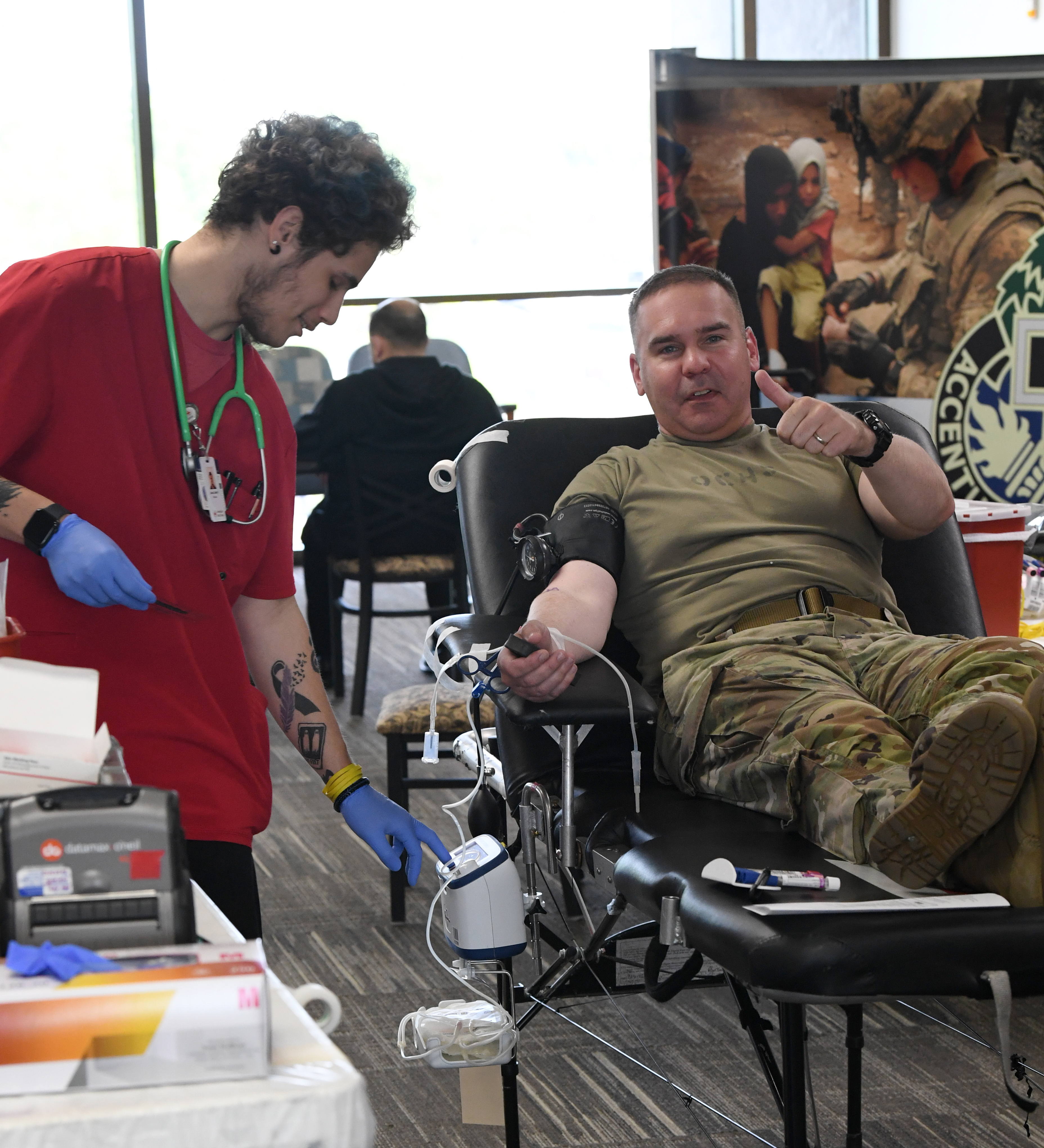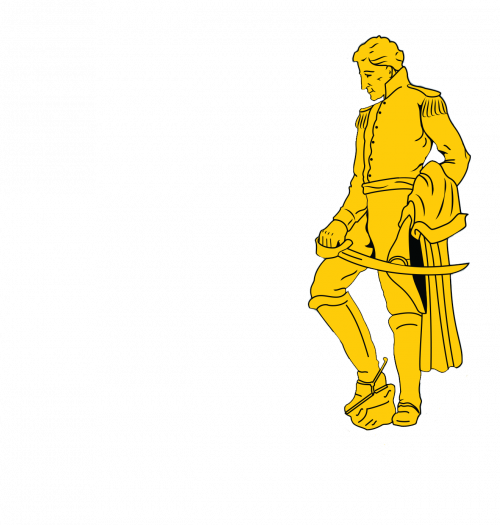
Fort Jackson Command Sgt. Maj. Erick Ochs gives a ‘thumbs up’ while donating blood at the American Red Cross blood drive, April 10.
Every blood donor is a hero
By Emily Hileman, Fort Jackson Public Affairs
The equation 1 = 3 does not makes sense to most people, but to the American Red Cross, it’s a fact of life. one pint of blood (the average amount received from one blood donation) can save up to three lives.
“1 pint of blood can help up to three different people in various ways,” said Will Sexton, a retired Fort Jackson firefighter and blood drive coordinator. “There’s a national shortage for blood. Sadly, only about 28% of people who are eligible to donate actually do it. That’s why it’s such an important cause,” Sexton continued.
“It’s important for us to donate, because the Armed Services uses a lot of blood,” said Post Command Sgt. Maj. Erick Ochs. “We depend on it for our Soldiers in combat operations, we depend on it for ourselves and our Families here stateside. No one knows when they’ll need blood.”
Think you can’t donate because you lived in Europe in the 80s? Think again. The American Red Cross now accepts donations from individuals who spent time in certain European countries between 1980 and 2001.
The original ban was due to the prevalence of Creutzfeldt-Jakob Disease (also known as “Mad Cow” Disease) throughout many affected European countries. The decades-old ban was fully lifted by the Food and Drug Administration in 2020 and individuals that were previously disqualified, may be eligible to donate.
“Don’t disqualify yourself. Let the medical experts do that. I lived in Europe during the ‘Mad Cow’ era and wasn’t able to donate for many years, but I was cleared a few years ago,” Sexton said. “So, here I am, again, donating.”
Michelle Isom, another donor, ruled out donating blood due to a diagnosis of anemia, a condition that develops when your blood produces less red blood cells than it should. This time, she decided to have the medical experts disqualify her instead of just passing on the opportunity to save a life (or three).
“In the past, I had to have iron infusions, so I knew I wasn’t going to be able to donate blood, Isom said. “I knew they were going to prick my finger (to check my hemoglobin and I needed 12.5 (grams per deciliter) to donate as a female and mine was 12.7, so I just made the cut,” she said. The whole process, from signing in to getting her juice box post-donation only took about 15 minutes.
The American Red Cross hoped to collect 25 pints of blood during this bimonthly drive. They met and exceeded their goal, by collecting 33 pints.
Upset that you missed the opportunity to give a pint and save some lives? “We do this every two months,” Sexton said. “We’d love for you to come out.”
The next community blood drive will be at Moncrief Army Health Clinic, June 12. If you’d like more information about the American Red Cross or to donate sooner, visit www.redcross.org/give-blood.html.





